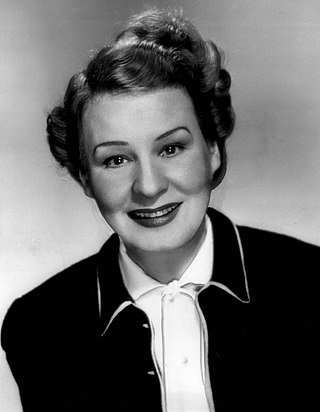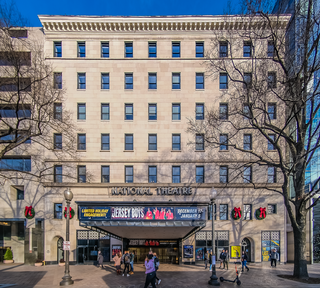
The Importance of Being Earnest, A Trivial Comedy for Serious People is a play by Oscar Wilde. First performed on 14 February 1895 at the St James's Theatre in London, it is a farcical comedy in which the protagonists maintain fictitious personae to escape burdensome social obligations. Working within the social conventions of late Victorian London, the play's major themes are the triviality with which it treats institutions as serious as marriage and the resulting satire of Victorian ways. Some contemporary reviews praised the play's humour and the culmination of Wilde's artistic career, while others were cautious about its lack of social messages. Its high farce and witty dialogue have helped make The Importance of Being Earnest Wilde's most enduringly popular play.

Savannah is the oldest city in the U.S. state of Georgia and is the county seat of Chatham County. Established in 1733 on the Savannah River, the city of Savannah became the British colonial capital of the Province of Georgia and later the first state capital of Georgia. A strategic port city in the American Revolution and during the American Civil War, Savannah is today an industrial center and an important Atlantic seaport. It is Georgia's fifth most populous city, with a 2020 U.S. Census population of 147,780. The Savannah metropolitan area, Georgia's third-largest, had a 2020 population of 404,798.

Shirley Booth was an American actress. One of 24 performers to achieve the Triple Crown of Acting, Booth was the recipient of an Academy Award, two Primetime Emmy Awards and three Tony Awards.

"Rip Van Winkle" is a short story by the American author Washington Irving, first published in 1819. It follows a Dutch-American villager in colonial America named Rip Van Winkle who meets mysterious Dutchmen, imbibes their strong liquor and thence falls deeply asleep in the Catskill Mountains. He awakes 20 years later to a very changed world, having missed the American Revolution.

Edwin Thomas Booth was an American actor who toured throughout the United States and the major capitals of Europe, performing Shakespearean plays. In 1869, he founded Booth's Theatre in New York. Some theatrical historians consider him the greatest American actor, and the greatest Prince Hamlet, of the 19th century. His achievements are often overshadowed by his relationship with his younger brother, actor John Wilkes Booth, who assassinated the 16th president of the United States, Abraham Lincoln.

Ford's Theatre is a theater located in Washington, D.C., which opened in August 1863. The theater is infamous for being the site of the assassination of Abraham Lincoln. On the night of April 14, 1865, John Wilkes Booth entered the theater box where Lincoln and his wife were watching a performance of Our American Cousin, slipped the single-shot, 5.87-inch derringer from his pocket and fired at Lincoln's head. After being shot, the fatally wounded Lincoln was carried across the street to the Petersen House, where he died the next morning.

Gyles Daubeney Brandreth is an English broadcaster, writer and former politician. He has worked as a television presenter, theatre producer, journalist, author and publisher.

Joseph Jefferson III, commonly known as Joe Jefferson, was an American actor. He was the third actor of this name in a family of actors and managers, and one of the most famous 19th century American comedians. Beginning as a young child, he continued as a performer for most of his 76 years. Jefferson was particularly well known for his adaptation and portrayal of Rip Van Winkle on the stage, reprising the role in several silent film adaptations. After 1865, he created no other major role and toured with this play for decades.

Walnut Street Theatre, founded in 1808 at 825 Walnut Street, on the corner of S. 9th Street in the Washington Square West neighborhood of Philadelphia, is the oldest operating theatre in the United States. The venue is operated by Walnut Street Theatre Company, a non-profit organization, and has three stages: the Mainstage, for the company's primary and larger productions, the Independence Studio on 3, a studio located on the building's third floor for smaller productions, and the Studio 5 on the fifth floor, which is rented out for independent productions.

The National Theatre in the United States is located in downtown Washington, D.C., just east of the White House, and functions as a venue for live stage productions with seating for 1,676. Despite its name, it is not a governmentally funded national theatre, but operated by a private, non-profit organization.

Ernest Truex was an American actor of stage, film, and television.

The Cathedral Basilica of St. John the Baptist is a Roman Catholic cathedral and minor basilica in Lafayette Square at 222 East Harris Street, Savannah, Georgia, in the United States. It is the mother church of the Roman Catholic Diocese of Savannah.

The Springer Opera House is a historic theater at 103 Tenth Street in Downtown Columbus, Georgia. First opened February 21, 1871, the theater was named the State Theatre of Georgia by Governor Jimmy Carter for its 100th anniversary season, a designation made permanent by the 1992 state legislature. The Springer has hosted legendary performers such as Edwin Booth, Oscar Wilde, Ethel Barrymore, Agnes de Mille, and bandleader John Philip Sousa. The building was added to the National Register of Historic Places in 1970 and named a National Historic Landmark in 1978 for its architecture and state of preservation.

The Players is a private social club founded in New York City by the noted 19th-century Shakespearean actor Edwin Booth.
Booth's Theatre was a theatre in New York built by actor Edwin Booth. Located on the southeast corner of 23rd Street and Sixth Avenue, Booth's Theatre opened on February 3, 1869.

The first theatre in New York City to bear the name The Winter Garden Theatre had a brief but important seventeen-year history as one of New York's premier showcases for a wide range of theatrical fare, from variety shows to extravagant productions of the works of Shakespeare. Initially known as Tripler's Hall or Metropolitan Hall, it burned down in 1854 and was rebuilt as The New York Theatre. Although it burned to the ground several times, it rose from the ashes under different managers, bearing various names, to become known as one of the most important theatres in New York history.

Elsie Leslie was an American actress. She was America's first child star and the highest paid and most popular child actress of her era.

The Georgian Theatre Royal is a theatre and historic Georgian playhouse in the market town of Richmond, North Yorkshire, England. It is among the oldest of Britain's extant theatres.
The following is a timeline of the history of Savannah, Georgia, United States.

Alberta Gallatin was an American stage and film actress active in the late 19th and early 20th centuries. During her near forty-year career she acted in support of the likes of Elizabeth Crocker Bowers, James O’Neil, Edwin Booth, Joseph Jefferson, Thomas W. Keene, Richard Mansfield, Sir Johnston Forbes-Robertson, Minnie Maddern Fiske, Otis Skinner, Maurice Barrymore, Joseph Adler, E. H. Sothern and James K. Hackett. Gallatin was perhaps best remembered by theatergoers for her varied classical roles, as Mrs. Alving in Henrik Ibsen's domestic tragedy Ghosts and the central character in the Franz Grillparzer tragedy Sappho. Counted among her few film roles was the part of Mrs. MacCrea in the 1914 silent film The Christian, an early 8-reel production based on the novel by Hall Caine.






















